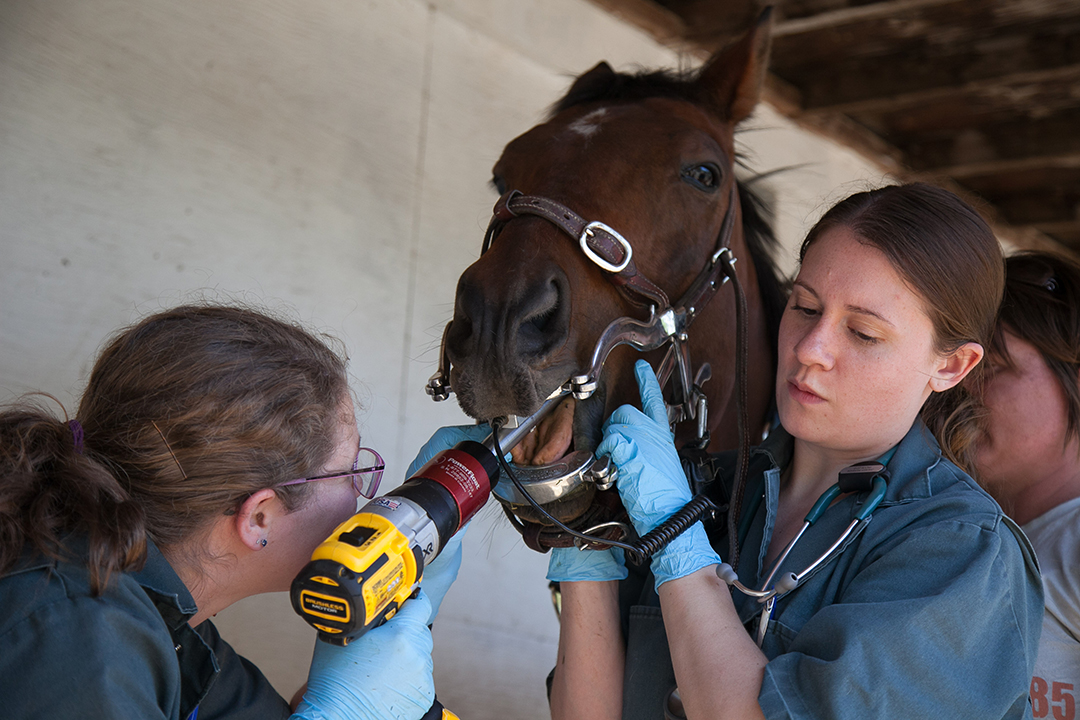Equine oral hygiene is a crucial aspect of maintaining your horse’s overall health. Just like humans, horses require regular dental care to ensure they live a comfortable and healthy life. In this article, we will explore the importance of equine oral hygiene and how it contributes to your horse’s well-being.

Understanding Equine Oral Hygiene
The concept of equine oral hygiene encompasses various practices aimed at maintaining the health of a horse’s mouth, teeth, and gums. Proper dental care can prevent numerous health issues, including infections, malnutrition, and behavioral problems.
Why is Equine Oral Hygiene Important?
Maintaining good oral hygiene in horses is essential for several reasons. Firstly, it helps prevent the development of dental diseases, which can be painful and lead to more severe health problems. Secondly, it ensures your horse can chew food properly, aiding in digestion and nutrient absorption. Lastly, it can prevent behavioral issues stemming from oral discomfort.
Common Dental Issues in Horses
Horses can suffer from various dental problems, including sharp enamel points, overgrown teeth, and infected gums. These issues can cause pain, discomfort, and difficulty eating. Regular dental check-ups can help identify and address these problems early.
Signs of Dental Problems in Horses
Your horse may exhibit several signs indicating dental issues. Look out for changes in eating habits, such as dropping food, excessive salivation, or a reluctance to eat. Additionally, pay attention to any unusual behavior, such as head tossing or resistance to the bit.
Regular Dental Check-Ups
Regular dental check-ups are vital to maintaining your horse’s oral health. A professional equine dentist can perform a thorough examination and provide necessary treatments, such as floating, to ensure your horse’s teeth are in optimal condition.
Importance of Floating
Floating is a common procedure in equine oral hygiene, which involves filing down sharp enamel points that can cause oral discomfort. Regular floating can prevent cuts, sores, and other oral issues.
For more on floating, visit our detailed guide on floating a horse’s teeth.
Wolf Teeth and Their Impact
Wolf teeth are small, peg-like teeth that can cause discomfort when they interfere with the bit. Removing these teeth can improve your horse’s comfort and performance. Learn more about wolf teeth in horses.
Equine Dentistry vs. Veterinary Care
While veterinarians can provide basic dental care, a specialized equine dentist is often required for more complex procedures. Understanding the difference can help you make informed decisions about your horse’s dental care. Read more about equine dentistry vs. vet.
Mini Horses and Dental Care
Miniature horses have unique dental needs due to their small size and tooth structure. Regular dental check-ups are crucial for maintaining their oral health. Discover more about dental work for mini horses.
Preventing Dental Issues in Horses
Prevention is key to ensuring your horse’s oral health. Provide your horse with a balanced diet, regular dental check-ups, and appropriate dental treatments when necessary.
Nutritional Support for Oral Health
A balanced diet rich in essential nutrients can support your horse’s oral health. Ensure your horse receives adequate vitamins and minerals to maintain strong teeth and gums.
Behavioral Signs of Discomfort
Pay attention to any changes in your horse’s behavior that may indicate oral discomfort. Head tossing, reluctance to accept the bit, or unusual eating habits may signal dental issues.
For more on equine teeth grinding, visit our article on equine teeth grinding.
FAQs about Equine Oral Hygiene
How often should horses have dental check-ups?
Horses should have dental check-ups at least once a year. However, some horses may require more frequent visits depending on their age and dental condition.
Can dental issues affect a horse’s performance?
Yes, dental issues can significantly impact a horse’s performance. Oral discomfort can cause behavioral problems and reluctance to accept the bit.
What is the role of an equine dentist?
An equine dentist specializes in the dental care of horses. They perform examinations, treatments, and procedures to maintain and improve a horse’s oral health.

Conclusion
Maintaining equine oral hygiene is essential for the overall health and well-being of your horse. Regular dental check-ups, proper nutrition, and attention to behavioral signs can ensure your horse remains healthy and comfortable. For more information on equine dentistry, visit the American Association of Equine Practitioners and explore their resources on equine oral health.
This article contains affiliate links. We may earn a commission at no extra cost to you.
